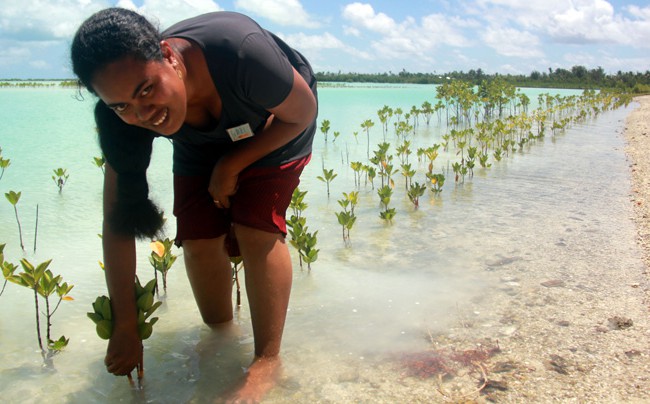
What Majuro meant for Polynesia?
As each Forum country representative returns home after the Majuro Forum meetings, one question looms highest among all others: what has been discussed, decided, or achieved during these annual meetings that will make a difference to member countries? This was not a question just after this year’s meetings. This has always been asked after each Forum meeting for many years, and rightly so.
An official from Melanesia who did not want to be named suggested that maybe the meetings should be held every two years instead of annually. At least it would be less costly. And it will also avoid the frequently raised allegation that PIF is just an exclusive “country club” for Pacific leaders, who used the annual meeting as a paid-for break from their busy schedules.
It is probably time to have a review of the usefulness of these meetings to each Forum country, considering the annual cost to holding them. Obviously the Majuro meeting was successful in its urgent and desperate call for climate change actions, drawing the attention of the Pacific states to look seriously at “the greatest threat our region faces.” But the Majuro Declaration, aimed at giving a new momentum to the region’s fight against climate change, may have raised questions as to why island states that are suffering from the effects of climate change have to bear the leading responsibilities of trying to reduce an outcome and solving a problem they did not create?
The concern with the Majuro Declaration is not so much what it declares but what it does not. But fourteen Pacific leaders agreed to the Majuro Declaration expressing a commitment to “climate leadership” and called on countries to list specific pledges to reduce pollution. But Radio New Zealand International reported that the declaration was “light on details.” It also seems to soft-pedal the call on larger countries that are chief polluters for specific actions in cutting global greenhouse emissions, and helping to fund programs that deal with the realities of sinking islands and climate change impacts.
But what impact did the Majuro Declaration, and the Forum meetings in general have on the states of Polynesia? What was discussed or decided upon in Majuro that fit into the individual interests of Polynesian states? How are the “climate policies” of Polynesia going to be shaped by the Majuro Declaration?
The largest of the Southern Polynesian states, Fiji, which is also part of the Melanesian states, was not represented at the Forum. Fiji is still suspended since the 2006 military coup. Fiji’s absence from the Forum has made very little, if any negative impact to its economy. In fact its economy has grown despite being marginalized from the Forum. Fiji, however, looks set to be accepted back into the Forum after their 2014 election. But the question that has been posed recently from many quarters was whether Fiji really needs the Forum as much as the Forum needs Fiji, who by the way has initiated the formation of the Pacific Islands Development Forum (PIDF) as a regional body focusing on trade and economic collaboration.
The three big players from Polynesia in the PIF are Samoa, Tonga, and the Cook Islands. The Cook Islands Prime Minister, Mr. Henry Puna, has pulled his weight behind the climate change issue in close support of Marshall’s President Christopher Loeak who was hopeful that the Majuro Declaration would be important in the future fight against climate change.
President Loeak said: “We want our Majuro Declaration for climate leadership to be a game changer in the global fight against climate change. Forged on the frontlines of climate change’s devastating impacts, we hope it gives new impetus and accelerates the transition to the low-carbon economy.”
The Marshall Islands President who chairs the Forum over the next 12 months will present the Majuro Declaration to UN Secretary-General Ban Ki-moon this month. And there is hope that it will be received at the highest level of the UN, and as Tuvalu’s Prime Minister, Enele Sopoaga said: “So that a legally binding framework can be put in place by 2015.”
Tonga and Samoa are highly susceptible to the impacts of climate change and disaster risks. Both countries have come up with their own strategic plans to enable people to adapt to the impacts of climate change and to mitigate disaster risks, but these plans look better on paper than in reality.
Tonga’s government has announced the high priorities in its National Strategic Planning Framework, 2009-2014, it gives to climate change activities. Tonga has a “Joint National Action Plan on Climate Change Adaptation and Disaster Risk Management.” But probably the one plan that Tonga has led the region on is to do with renewable energy. The establishment of the Tonga Energy Road Map (TERM) since 2008 and its leadership in renewable energy planning has resulted in the awarding of millions of dollars of “clean energy aid” from international donors. A solar energy farm has already been in operation, and nine other locations throughout Tonga are making switches from diesel fueled energy supply to renewable energy sources.
Tonga is trying to do with climate change what it has done with energy, understanding that in the long run, renewable energy and being weaned from diesel oil goes a long way in cutting greenhouse emissions and managing disaster risks. And so, the Majuro Declaration, as needed as it is, may not in anyway make a difference to the ongoing plans and programs carried out in Polynesia.
Natalia Latu, a leading economist from the Tonga Ministry of Finance said: “At the moment we are dealing with land erosion and dramatic changes in the climate which affect our food supply. If we were hit by a cyclone tomorrow, we stand to lose 50% of our (food) resources.” But she goes on to offer hope: “Tonga has learned the value in acting deliberately and hopes to apply the same method to climate change.”

